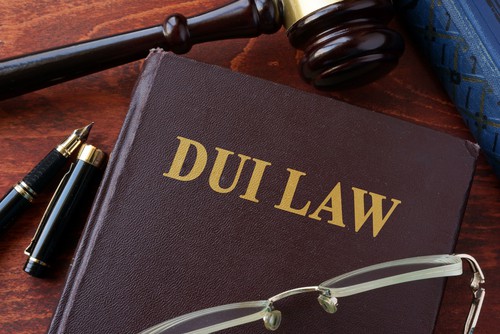
There are several circumstances in which driving while intoxicated (DWI) can be a felony in Texas. A DWI can be a felony in our state if it is your third DWI conviction, if someone sustained severe physical injuries in a car crash in which you got the DWI, or if a child under the age of 15 was in the car with you when you got a DWI.
The Texas statute 49 provides that a person who drives a motor vehicle in a public place, or operates an amusement park ride, aircraft, or watercraft while intoxicated, can get charged with an offense of driving while intoxicated (DWI).
Under Texas law, you can be legally intoxicated if:
- You have an alcohol concentration of 0.08 or more; or
- You do not have the normal use of your physical or mental functions because of alcohol, drugs, or a combination of those substances, even if your alcohol concentration is less than 0.08.
Usually, a DWI is a misdemeanor, but there are specific factors that can escalate the DWI charge from a misdemeanor to a felony.
Driving While Intoxicated with a Child Passenger
The DWI can be charged as a felony if there is a passenger in your car who is younger than 15 years old. This offense is a state jail felony.
Intoxication Assault
If a person’s conduct qualifies as a DWI in Texas, the charge can be increased to an intoxication assault if the intoxication causes someone else to sustain serious bodily harm by accident or mistake. Texas statutes define “serious bodily harm” as an injury that is:
- Life-threatening
- Causes severe permanent disfigurement
- It causes long-term loss of function of any body part or organ.
This offense is a third-degree felony DWI in Texas.
Intoxication Manslaughter
It is a second-degree felony if a person causes the death of another person by accident or mistake while legally intoxicated and is:
- Operating a car or truck in a public place,
- Operating an aircraft, watercraft, or amusement park ride
- Assembling a mobile amusement ride
The intoxication must be a contributing factor to the person’s injury and death.
Additional Factors That Can Lead to a Felony DWI
These scenarios can cause a DWI to get charged as a felony:
- A previous conviction in a state other than Texas for a DWI, flying, or boating while intoxicated, or assembling or operating an amusement park ride while intoxicated if the criminal elements of that state are substantially similar to our laws in Texas. This situation can be a felony of the third degree.
- Two previous convictions for any alcohol-related offense can result in a third-degree felony.
- If the person who sustains serious physical injuries because of the intoxication was a firefighter or emergency medical service worker discharging official duties, the DWI charge can be a felony in the second degree.
- If a peace officer or judge is the victim of serious bodily harm and was performing official duties at the time, the DWI can be a first-degree felony.
- The DWI can get charged as a felony in the first degree if the firefighter, emergency medical personnel, peace officer, or judge dies from the injuries.
- A second-degree felony DWI can result if anyone who gets injured because of the intoxicated conduct sustains a traumatic brain injury that leaves the person in a persistent vegetative state.
The prosecutor does not have to prove a culpable state of mind in a felony DWI case. Also, if the substance that caused the impairment was a legal substance, like a prescription drug, that fact will not be a defense to a felony DWI charge in Texas.

Getting Legal Help for a Felony DWI Charge in Texas
If you are convicted of a felony DWI in Texas, the consequences will change the course of the rest of your life. You will face insurmountable challenges to getting a high-quality education, a well-paying job, and the ability to obtain licenses for certain professions from the Texas Department of Public Safety. Also, you will face the long-term penalties of being a convicted felon.
Your only hope for avoiding those adverse outcomes if you got charged with a felony DWI is to fight the charges. An experienced felony DWI lawyer might be able to help build a defense and advocate for you. Anyone can make a mistake. Everyone deserves a good defense and the opportunity to make better choices in the future.
Randall B. Isenberg is a former prosecutor and state district judge. He has over 30 years of experience in criminal law. Call the Law Offices of Randall B. Isenberg at (214) 696-9253. Your future is at stake.










